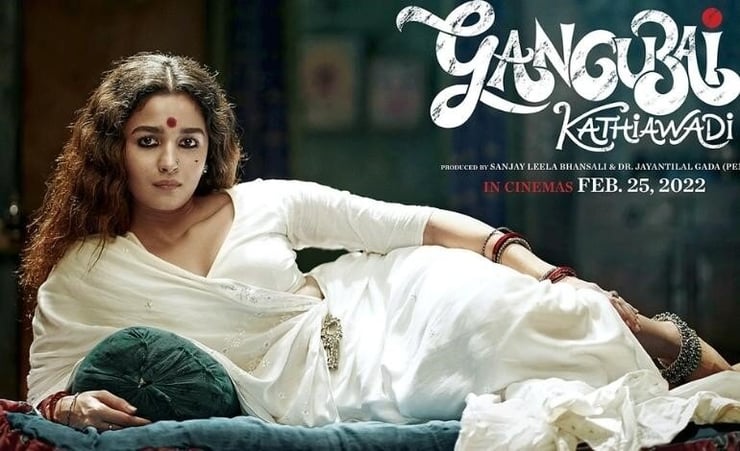Film review: Bhatt and Bhansali give good bang for buck

Rating : 4 Stars out of 5 (Excellent)
Director : Sanjay Leela Bhansali
Cast : Alia Bhatt, Indira Tiwari, Vijay Raaz
Hindi (English Subtitles Available)
She's done it again, and so has he! Alia Bhatt may not have exactly torn the screen apart with incredible acting, but she's almost reached that dizzying pinnacle here, embodying a gutsy young lady who rises phoenix-like from the ashes to defend sex workers' rights in Bombay's Kamathipura (it was called Bombay then).
Sanjay Leela Bhansali is still at his melodramatic best in the impressive third decade of his career when his coevals have retired or tired, extracting a strong performance from a star to ignite a strong screenplay, peppered throughout with effervescent plot points. This is not a deeply personal and lacerating "Your Name Is Justine" (2006) but it need not be – this is a mainstream movie that makes you think about how it feels to be a prostitute. Regardless of whether one agrees with the protagonist's moral stand, that is a major achievement.
After dedicating the film to many people, and a record of sorts with a beloved posthumous pooch included in the tribute, film begins with the painful story of a young Ganga Harjivandas whose elopement from Kathiawad ends nightmarishly in a brothel in Bombay's Kamathipura. The re-born Gangubai emerges from the muck to become the elected leader of the red-light district, aided by a powerful don Rahim Khan (Ajay Devgn) and a courageous journalist Amin Faizi (Jim Sarbh). Rivals like Raziabai (an excellent Vijay Raaz) have their vehemence curtailed before they pose too much of a challenge.
While watching movies, a reviewer sometimes can't help sizing up the filmmaker through the runtime - how good actually is he or she ? With Bansali back at his assiduous craft here, not letting the aesthetics or the emotional punch slip, I soon banished such thoughts. This man feels like an old friend, making lauded movies from the time some of his current viewers were not even born (Khamoshi : 1996), perhaps the only mainstream national level filmmaker still going strong from the 1990s to 2022.
Casting the still college-fresh, innocent looking Alia Bhatt is a gutsy choice for a brothel madame role [ Bhat nonetheless is no stranger to essaying sexually abused girls, with 'Highway' (2014) and Udta Punjab (2016) ]. Undaunted, Bhatt creates undying spunk that steadily issues from her character's child-like physiognomy and fragile frame. A sheer daredevil nature lashes out at her surprised aggressors who underestimate the pretty flower. Gangubai takes on imposing projects and gives back as good as she gets with dialogue that bursts with juice and fizz. Only rarely does Bhat fall short in being seamlessly emotive, but in scenes like the phone call with Ganga's mother, and a speech in a luminous large white tent, she brings the roof down with her chutzpah.
Co-Writer Utkarshini Vashishtha's screenplay inserts exquisitely ironic symmetries. At the start, Ganga dances in the festive season amongst companions as a young lady in her parents' home, unspoiled and nascent. Years later she dances until she drops in a swirling continuous take amongst other ladies – she is still young, and the house and courtyard are still hers, but it is the one she conquered, not inherited. She is now the head of department of those who are far beyond unspoiled and nascent, and that makes her frenetically choreographed nostalgia all the more crushing.
Bhansali, like Vishal Bhardwaj, is shortchanging his films by shoving his own repetitious, mediocre compositions into the film as songs. Gone are the times when Devdas and Hum Dil De Chuke Sanam scored by Ismail Darbar, immeasurably bolstered Bhansali's film. Only a few of the latter's compositions manage to be good, like this album's Rasme Ulfat inspired Muskurahat. Restricting himself to being a guest composer for one or two songs may work much better.
Sudeep Chatterjee elegantly films the director-producer's penchant for grand, immaculate sets, although the rough milieu would have called for less prettified production design.
Bhansali himself has admitted that he is not able to put on screen the naked realism of Ritwik Ghatak's best. But there is a middle world between realism and commercialism and Bhansali remains the kingly madame of that demi-monde.




